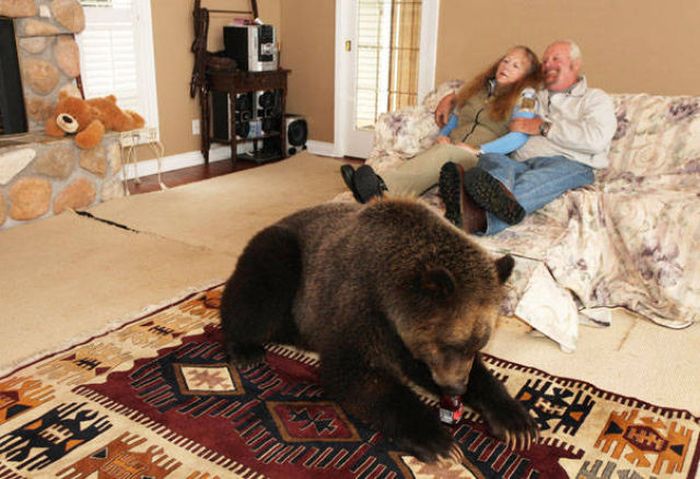|
|
Billy, Grizzly Bear Pet, Vancouver, British Columbia, Canada
|
Conflicts with humans
Grizzlies are considered by some experts to be more aggressive than black bears when defending themselves and their offspring. Aggressive behavior in grizzly bears is favored by numerous selection variables. Unlike the smaller black bears, adult grizzlies are too large to escape danger by climbing trees, so they respond to danger by standing their ground and warding off their attackers. Increased aggressiveness also assists female grizzlies in better ensuring the survival of their young to reproductive age. Mothers defending their cubs are the most prone to attacking, being responsible for 70% of fatal injuries to humans. Historically, bears have competed with other large predators for food, which also favors increased aggression.
Grizzly bears normally avoid contact with people. In spite of their obvious physical advantages and many opportunities, they almost never view humans as prey; bears rarely actively hunt humans. Most grizzly bear attacks result from a bear that has been surprised at very close range, especially if it has a supply of food to protect, or female grizzlies protecting their offspring. In such situations, property may be damaged and the bear may physically harm the person.
|
|









